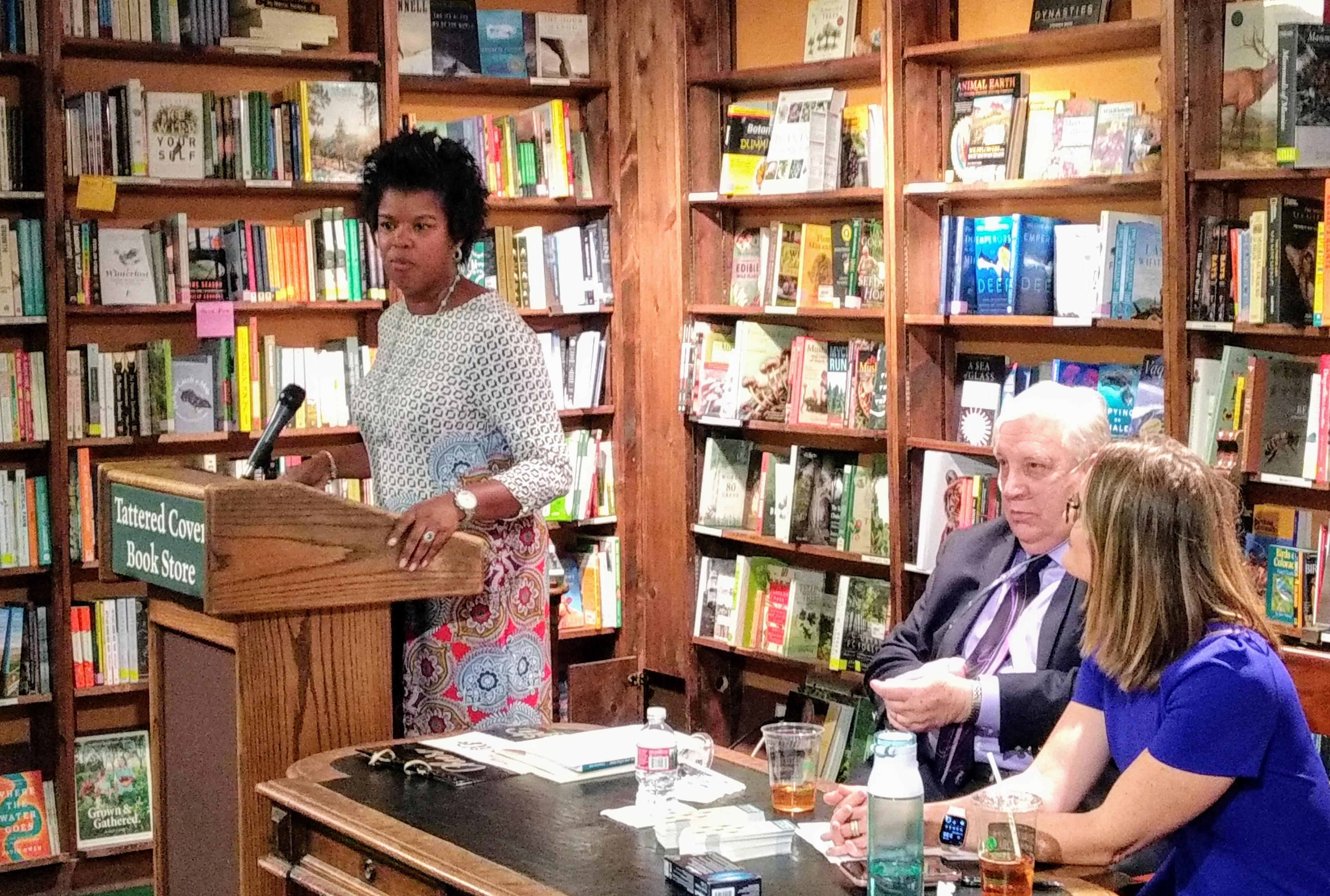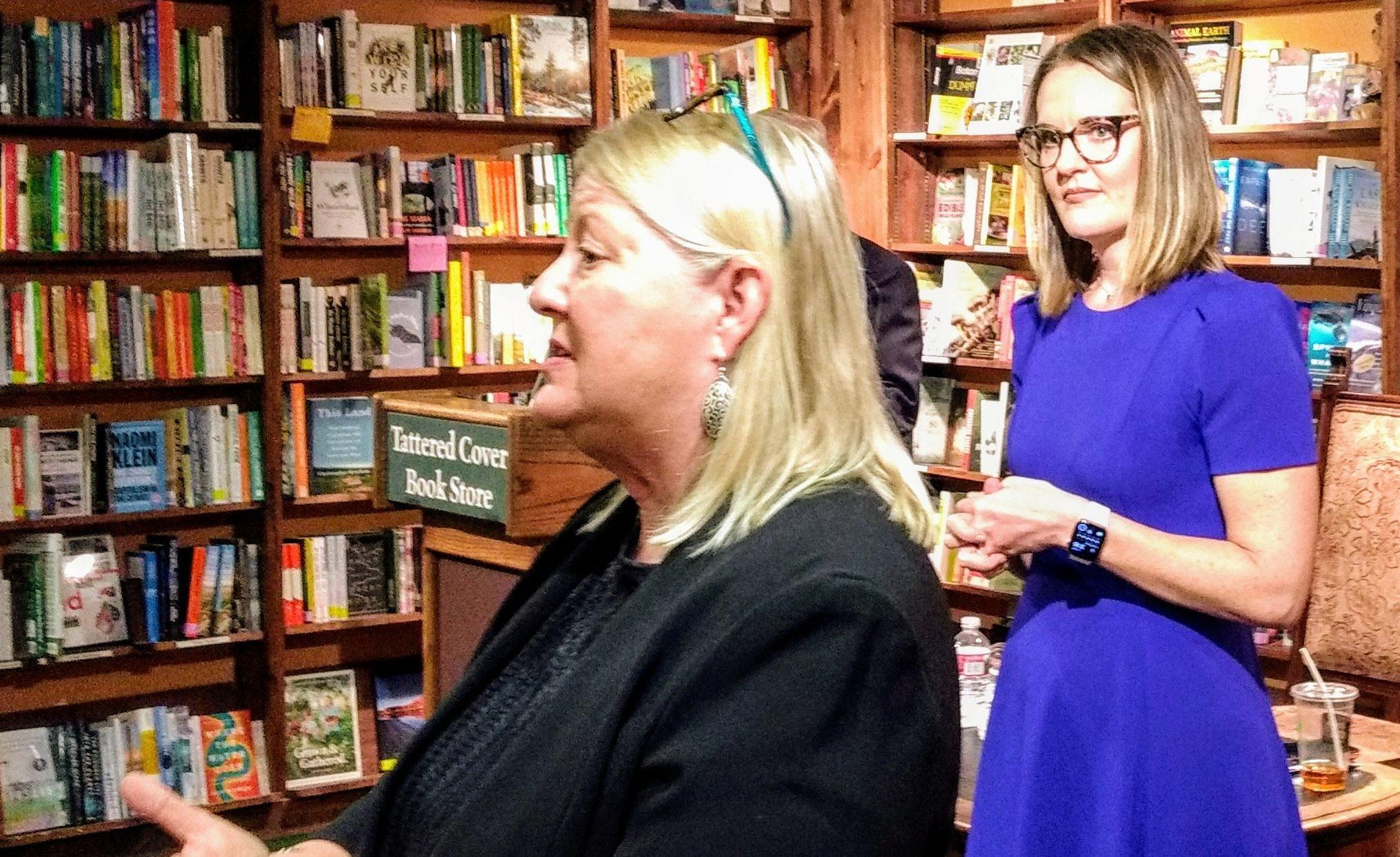Before her alcoholic father and stepmother fell behind on their mortgage payments and lost their home when Barbara Jackson was six years old, they had allowed the house to deteriorate. Their little girl took to seeking a haven in a warm, 24-hour laundromat with her younger brother.
"Sometimes I would even scrounge up a dime or two by returning pop bottles for deposit just so I could run the dryers in the middle of the night, so we could have more heat," Jackson recalls in a new book, "Journeys out of Homelessness."
In the book, Jackson and others offer glimpses of the ingenuity and grit that got them through homelessness. And again and again, they point to human connections that helped them survive when they were most desperate and prepared them to thrive later. For Jackson, it was teachers who offered her outings, books and supportive attention. Jackson eventually moved into a stable home with her mother and went on to run her own building firm and now directs the real estate and construction management school at the University of Denver.
Her childhood teachers "believed in me," Jackson told a rapt audience of about 50 people at a weekend launch for "Journeys out of Homelessness" at the Tattered Cover on East Colfax Avenue. "The biggest thing they gave me, more than anything else, was opportunity. I had something to hope for and to strive for. The more they exposed me to, the more I had hope. The more I could dream."
The book's subtitle -- "the voices of lived experience" -- is a clue it was a product of academics as well as people who have experienced homelessness. The academics were Donald Burnes, who founded a think tank on poverty and homelessness at the University of Denver, and Jamie Rife, who coordinated programs for homeless students at the Colorado Department of Education. This week, the Colorado Center on Law & Policy, a research and advocacy group, announced that Burnes and his wife Lynn Burnes were funding and Donald Burnes will work with a new project, The Burnes Institute for Poverty Research at Colorado Center on Law & Policy.

Donald Burnes and Rife told Denverite they set out two years ago to gather stories for "Journeys" to show readers that the faces and causes of homelessness are more varied than the stereotype of an unkempt man with a shopping cart piled with belongings next to a tent along Cherry Creek.
Homelessness "could happen to any of us," Donald Burnes and Rife write in one of their passages offering context that link the book's nine profiles. "In fact, it does."
"Although each story is different, there are common themes in how our contributors became homeless," Donald Burnes and Rife write. "One of these themes is trauma, especially the trauma caused by family dysfunction, as was the case with Barb, Tim, Tiffany, Blizzard and James, although each suffered the consequences of the family's issues at different stages in their lives. Michelle and Caroline became homeless through system errors: Michelle due to an administrative error regarding her college financial aid. Caroline through medical failure to properly diagnose her illness. Leanne was the victim of a major national economic downturn, a series of events that has had a major impact on thousands of families across the country. Finally, Marie's parents were unable to get the legal help they needed, which had a significant impact on the family's housing circumstances for years."
In an interview, Donald Burnes and Rife said their publisher pushed them to explore not just the who and why of homelessness, but what personal stories can teach about how to end it.
"I never thought I was an expert on homelessness," Rife said. "I feel like I came out (of compiling the book) much better informed than when I went in because of these nine people."
Rife, a former classroom teacher, said she was especially struck by the importance that people experiencing homelessness placed on finding someone who cared enough to listen.
When Jackson and others talk about ending homelessness, Rife said, "it wasn't about housing projects or vouchers. It was about an educator, a mentor."
"I don't think we spend enough time thinking about the role each of us can play," Rife said.
Donald Burnes, who has consulted with and worked for groups that offer help to people living on the streets, said such service organizations can learn from the experts -- people experiencing homelessness.
Michelle McHenry-Edrington, an Air Force veteran, lost housing after coming to Denver in 2011 to study, only to encounter problems with her financial aid. She told her Veterans Affairs case managers, she writes in "Journeys," "I have a plan: finish my degree, get a job, and get on with my life. They had one thought: everyone who was without a home/roof was an addict, alcoholic, could not manage their money, and had no discipline."
"I found myself getting very frustrated with case managers who thought the process was more important than the individual," she said, describing her struggles to explain that the time she was expected to spend in programs designed to address her supposed shortcomings was keeping her from her classes.
McHenry-Edrington, who is black, also saw racism at work. She wasn't able to devote time to her school work and her own plan for escaping homelessness until a white fellow veteran made the same arguments she had been making to her case managers. McHenry-Edrington now works for the Colorado Cross-Disability Coalition, a civil rights group.
In "Journeys," Donald Burnes and Rife underline larger issues that impact homelessness such as racism and the growing gap between housing prices and wages. During the Tattered Cover book launch, Donald Burnes called for "major new resources around housing."
Leanne Wheeler is an Air Force veteran with two engineering degrees who experienced homelessness after losing a defense industry job in 2008. She is now helping to build affordable housing in Aurora. She also recently lost a bid for a seat on Aurora's city council that she had hoped to use in part to push for more affordable housing in the Denver suburb.
"Please consider that there's a future and a hope that lives in every one of us who has lived unhoused and lives unhoused right now," Wheeler told the audience at Tattered Cover.

While Wheeler, McHenry-Edrington, and Jackson are willing to share their experiences of homelessness in hopes of changing things for others, they all described a sense of shame that sometimes keeps people from seeking help.
"I believe that the issue of shame and restored dignity has been mostly overlooked when dealing with the homeless," Jackson writes in "Journeys." "It's why I think most attempts to remedy the problem have fallen short."
Donald Burnes said another University of Denver colleague had suggested he meet Jackson. He made an appointment, not knowing she had experienced homelessness. He said he found her story so compelling, it led to "Journeys."
All proceeds from the sale of the book are being donated to the National Alliance to End Homelessness.













